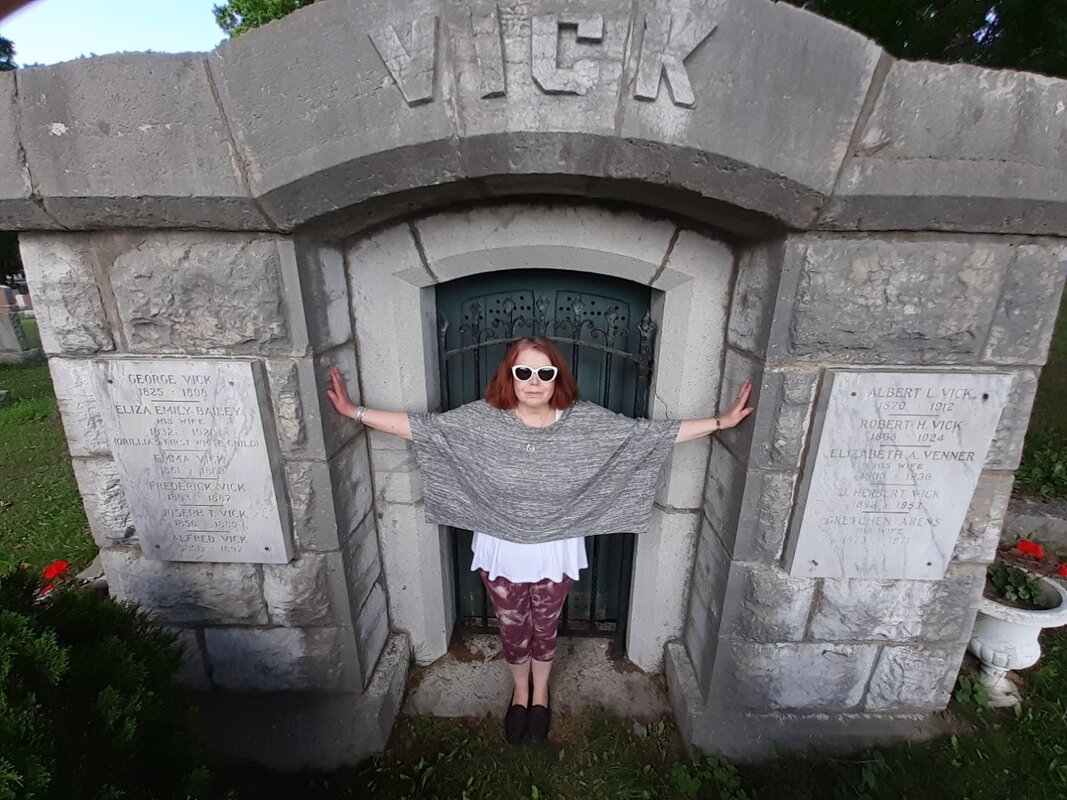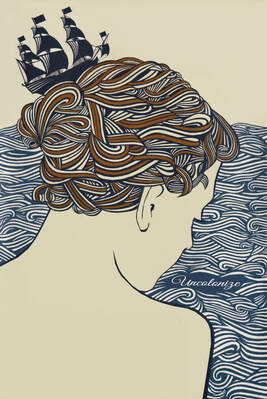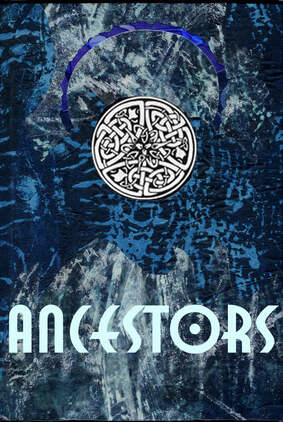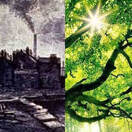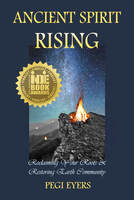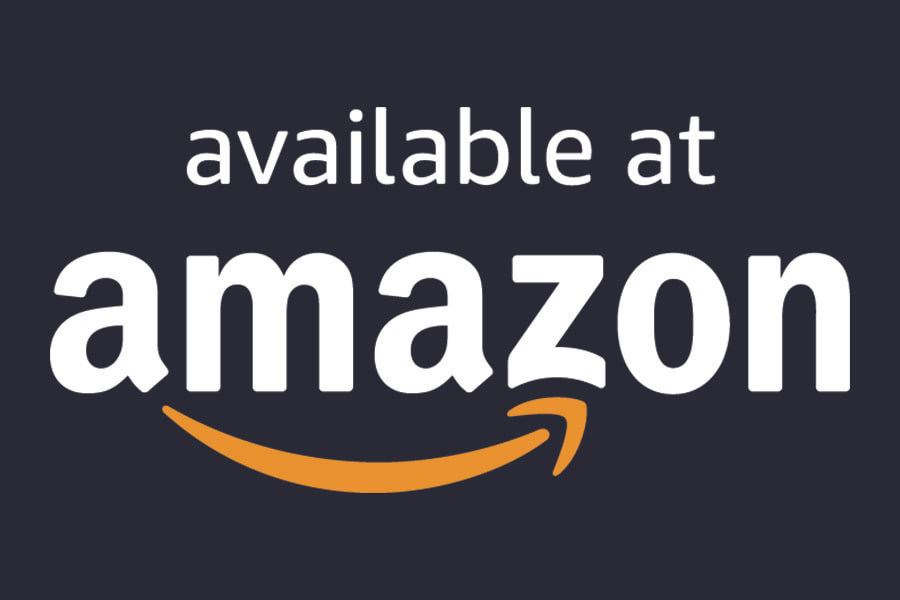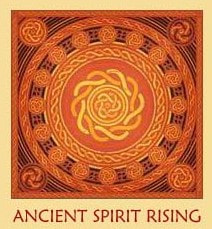Pegi Eyers
My personal mythology has come to mean standing on a foundation of ethnoculture, or the specificity of my Scots Gaelic and Anglo ancestors. Where were they from? How, when and why did they come to Turtle Island? I continue to explore these questions, but ambiguities and contradictions continue to arise.
In July of 2022 I travelled to my hometown of Orillia, Ontario and along with other touchstones, lodestones, soul maps and important places, I visited the town cemetery where the oldest and largest mausoleum holds the bones of my ancestors. In the first wave of Settler Colonialism, they arrived in 1832 and founded the town. I don't feel the sting so much of "orphan syndrome" but there was never a huge emphasis in my family on honoring family history, which is troubling and a deep source of grief. We do have a family genealogist who kept the family tree, but most of the important stories I had to find out for myself.
From my positionality today (who I am in 2022) my body [somatically] formed this gesture in front of the tomb, but the actual meaning is far from clear. Yes, on some level I am proud of these people, they are the ones who came before to make me who I am. They are my flesh, blood, bones and DNA, and their struggles and triumphs are also my own. I feel connected, and I own my people. My gesture might be praise, and benediction.
And yet my gesture also feels like a blocking - to keep the antiquated views of my ancestors in the past where they belong. Their white superiority, religious insularity, earth domination, land ownership, and the impulse to re-create their own society on lands that were already inhabited by the civilizations of Indigenous Peoples, are all anathema to my personal beliefs. In fact, the attitudes they carried are the same toxicities that have culminated in the polycrisis we face today of racism, genocide, structural inequality, out-of-control capitalism, and ecocide leading to devastating climate change.
How can I fully embrace my own ancestors, whose worldviews have caused so much harm to people, lands and waters? These are the contradictions that arise (there are more layers) as my relationship to my ancestors continues to deepen, and in some ways, push me farther away. I honestly don't know if there is a way to resolve this tension.
In July of 2022 I travelled to my hometown of Orillia, Ontario and along with other touchstones, lodestones, soul maps and important places, I visited the town cemetery where the oldest and largest mausoleum holds the bones of my ancestors. In the first wave of Settler Colonialism, they arrived in 1832 and founded the town. I don't feel the sting so much of "orphan syndrome" but there was never a huge emphasis in my family on honoring family history, which is troubling and a deep source of grief. We do have a family genealogist who kept the family tree, but most of the important stories I had to find out for myself.
From my positionality today (who I am in 2022) my body [somatically] formed this gesture in front of the tomb, but the actual meaning is far from clear. Yes, on some level I am proud of these people, they are the ones who came before to make me who I am. They are my flesh, blood, bones and DNA, and their struggles and triumphs are also my own. I feel connected, and I own my people. My gesture might be praise, and benediction.
And yet my gesture also feels like a blocking - to keep the antiquated views of my ancestors in the past where they belong. Their white superiority, religious insularity, earth domination, land ownership, and the impulse to re-create their own society on lands that were already inhabited by the civilizations of Indigenous Peoples, are all anathema to my personal beliefs. In fact, the attitudes they carried are the same toxicities that have culminated in the polycrisis we face today of racism, genocide, structural inequality, out-of-control capitalism, and ecocide leading to devastating climate change.
How can I fully embrace my own ancestors, whose worldviews have caused so much harm to people, lands and waters? These are the contradictions that arise (there are more layers) as my relationship to my ancestors continues to deepen, and in some ways, push me farther away. I honestly don't know if there is a way to resolve this tension.
INHERITANCE
My ancestors knew
the whirl
of the cyclone
the writhing,
twisting force
the threat
of swirling knots
They knew
how to dwell
in the eye
the arc of stillness
They knew the briny tangles would smooth to billowy ribbons
They knew how to ride them, gliding to another shore.
Sheryl J. Shapiro
My ancestors knew
the whirl
of the cyclone
the writhing,
twisting force
the threat
of swirling knots
They knew
how to dwell
in the eye
the arc of stillness
They knew the briny tangles would smooth to billowy ribbons
They knew how to ride them, gliding to another shore.
Sheryl J. Shapiro
| Pegi Eyers is the author of Ancient Spirit Rising: Reclaiming Your Roots & Restoring Earth Community, an award-winning book that explores strategies for social justice, uncolonization, ethnocultural identity, building land-emergent community & resilience in times of massive change. Available from Stone Circle Press or Amazon. |
